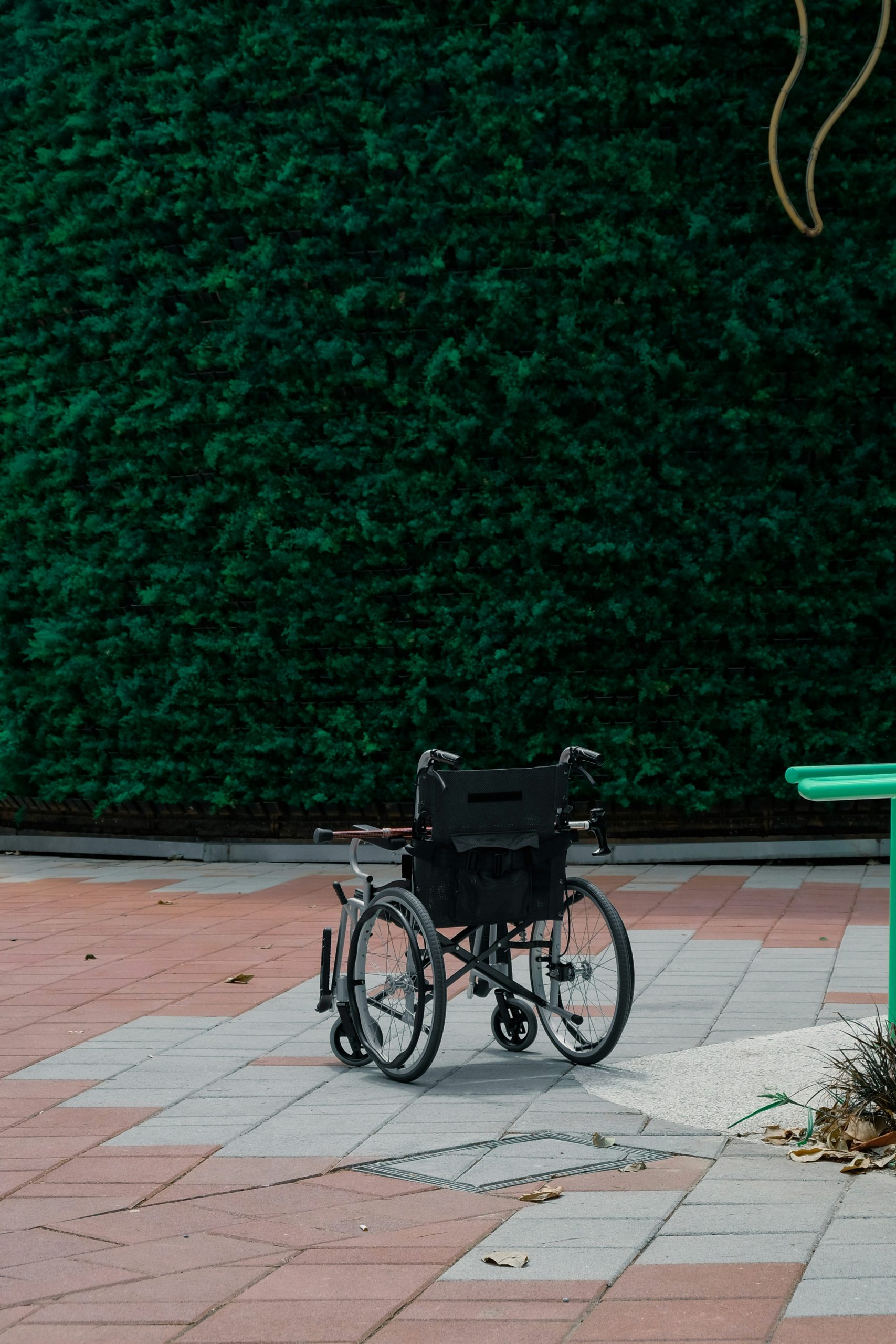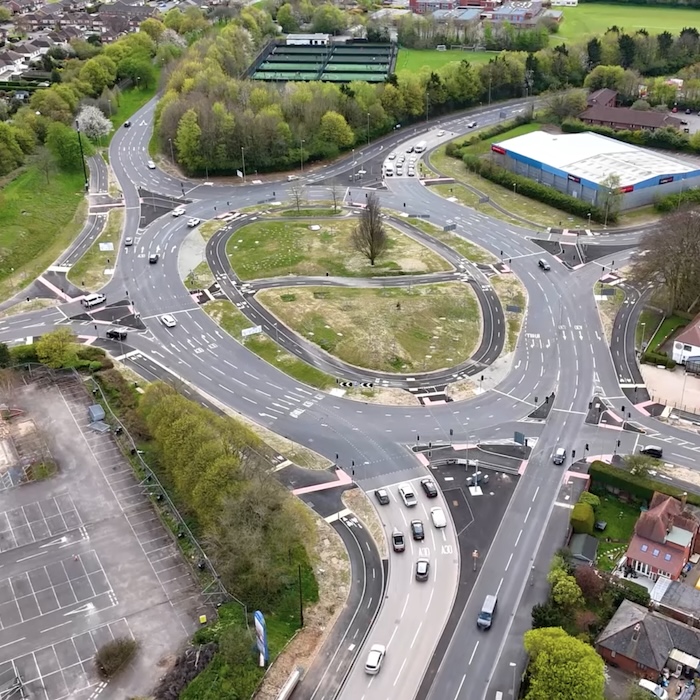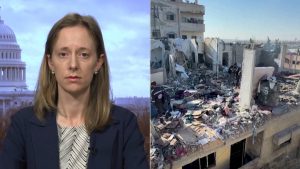This Ramadan, MuslimMatters reached out to our regular (and not-so-regular) crew of writers asking them to share their reflections on various ayahs/surahs of the Quran, ideally with a focus on a specific juz – those that may have impacted them in some specific way or have influenced how they approach both life and deen. While some contributors are well-versed in at least part of the Quranic Sciences, not all necessarily are, but reflect on their choices as a way of illustrating that our Holy Book is approachable from various human perspectives.
Introducing, A Ramadan Quran Journal: A MuslimMatters Series
***
Solace For the Sincere and Vulnerable
by Sa’diyya Nesar
As a person with a physical disability, I have always naturally gravitated towards the opening of the 80th Surah—titled ‘Abasa (He frowned)—simply because of it including the encounter of the blind companion named Abdullah  with Prophet Muhammad
with Prophet Muhammad  . This was when Abdullah
. This was when Abdullah  unintentionally interrupted our Prophet
unintentionally interrupted our Prophet  when he was delivering the message of Islam towards the leaders of Quraysh. The chance of delivering the message of Islam to the elites of Quraysh—without them mocking him in return—was rare, that this unintentional interruption came at the worst possible time.
when he was delivering the message of Islam towards the leaders of Quraysh. The chance of delivering the message of Islam to the elites of Quraysh—without them mocking him in return—was rare, that this unintentional interruption came at the worst possible time.
It is common to approach at the worst possible time when having a disability due to not necessarily having all the social cues to make an informed decision as to when it is the best time to approach. The social dynamics of one of our most vulnerable—a companion with a disability—approaching at not the best time while in the presence of the leaders of Qurayesh, therefore, naturally intrigued me. I hoped to further understand through this example how disability was approached in social context and how Islam helps eliminate social hierarchies that devalue the vulnerable.
I additionally understood when initially first reading the opening of Surah ‘Abasa how it is not easy to approach in the first place especially when having a disability. The fact that Abdullah  approached by calling our Prophet
approached by calling our Prophet  by his first name—repeatedly—indicates how he felt safe with him and that there was a bond of familiarity. It was, therefore, clear from this example that there was a pre-existing caretaking dynamic towards Abdullah
by his first name—repeatedly—indicates how he felt safe with him and that there was a bond of familiarity. It was, therefore, clear from this example that there was a pre-existing caretaking dynamic towards Abdullah  . Those with disabilities know that even our most loving carers have moments of frustration, especially when undergoing high-pressure social situations. Prophet Muhammad
. Those with disabilities know that even our most loving carers have moments of frustration, especially when undergoing high-pressure social situations. Prophet Muhammad  was going through a high-pressured social situation with the weight of the responsibility of being a Messenger. The period that this encounter occurred was when most who embraced Islam were from the most vulnerable. There was, therefore, the pressured need to have some of the leaders—and elites—be part of the Ummah for strengthening support.
was going through a high-pressured social situation with the weight of the responsibility of being a Messenger. The period that this encounter occurred was when most who embraced Islam were from the most vulnerable. There was, therefore, the pressured need to have some of the leaders—and elites—be part of the Ummah for strengthening support.
Abdullah  could not see that Muhammad
could not see that Muhammad  momentarily turned away with a slight frown due to the high pressured situation that he was in, but Allah
momentarily turned away with a slight frown due to the high pressured situation that he was in, but Allah  revealing that our beloved Prophet
revealing that our beloved Prophet  frowned and redirecting him to focus on Abdullah
frowned and redirecting him to focus on Abdullah  , spills volumes that we are meant to learn something here on how we are encouraged to engage with our sincere and vulnerable.
, spills volumes that we are meant to learn something here on how we are encouraged to engage with our sincere and vulnerable.

Disability [PC: Henry Co (unsplash)]
Prophet Muhammad  may not have had a disability, but he was at one point an orphan, and faced many vulnerable encounters when interacting with the leaders of Quraysh. Prophet Muhammad
may not have had a disability, but he was at one point an orphan, and faced many vulnerable encounters when interacting with the leaders of Quraysh. Prophet Muhammad  within Surah ‘Abasa was sincerely guiding the leaders of Quraysh who have not accepted Islam. Some among them were those who were not heeding the message, which put Prophet Muhammad
within Surah ‘Abasa was sincerely guiding the leaders of Quraysh who have not accepted Islam. Some among them were those who were not heeding the message, which put Prophet Muhammad  in a different layer of vulnerability compared to the vulnerability that Abdullah
in a different layer of vulnerability compared to the vulnerability that Abdullah  faced.
faced.
Surah 93—titled Ad-Dhuha, the morning brightness—similarly depicts the layers of vulnerabilities that Prophet Muhammad  experienced, especially due to the leaders mocking, and alluding that Allah
experienced, especially due to the leaders mocking, and alluding that Allah  had abandoned him by not giving him revelations for a period of time.
had abandoned him by not giving him revelations for a period of time.
I, therefore, thought for this article it would be interesting to explore both the opening of Surah ‘Abasa and Surah Ad-Duh—that are both within Juz 30—to pinpoint the parallels, especially in the context of providing solace to the sincere and vulnerable.
Below are 3 potential parallels:
1. Allah  mercifully intervenes at extreme periods of vulnerability
mercifully intervenes at extreme periods of vulnerability Prophet Muhammad  was going through a period of sadness because of how some of the people of Quraysh—especially the leaders and elites—were mocking him over revelation not coming down for a period of time. They had alluded that Allah
was going through a period of sadness because of how some of the people of Quraysh—especially the leaders and elites—were mocking him over revelation not coming down for a period of time. They had alluded that Allah  had abandoned him but this was when Surah Ad-Duha was revealed as a means to mercifully intervene.
had abandoned him but this was when Surah Ad-Duha was revealed as a means to mercifully intervene.
Allah  says,
says,
“Your Lord has not forsaken you, nor does He hate you.” [Surah Ad-Dhuha: 93;3]
This revelation automatically removes Prophet Muhammad  from the vulnerable position of having to continuously hear that Allah
from the vulnerable position of having to continuously hear that Allah  had abandoned him. It rather responds by showing otherwise by strengthening and reassuring our Prophet
had abandoned him. It rather responds by showing otherwise by strengthening and reassuring our Prophet  .
.
Similarly, at the beginning of Surah ‘Abasa, Allah  mercifully intervened by not only removing Abdullah
mercifully intervened by not only removing Abdullah  from a potentially vulnerable position of unintentionally not being attended to, but also removes the Prophet Muhammad
from a potentially vulnerable position of unintentionally not being attended to, but also removes the Prophet Muhammad  from the vulnerable position of having to continuously engage with the leaders of Quraysh that were not necessarily taking heed.
from the vulnerable position of having to continuously engage with the leaders of Quraysh that were not necessarily taking heed.
Allah  says,
says,
“How could you tell that he (blind companion) might have sought to better and cleanse himself?
He may have got a reminder and that reminder may have benefitted him.
As for him (leaders of Qurayesh) who thinks himself self-sufficient.
To him you attend.
Yet the fault would not be yours if he will not become pure.” [Surah ‘Abasa: 80;3-7]
Allah  is revealing here that the leaders of Quraysh are apathetic to the message that Prophet Muhammad
is revealing here that the leaders of Quraysh are apathetic to the message that Prophet Muhammad  was delivering to them. He is demonstrating how they feel free of need and are thus not deserving of any more of Prophet Muhammad’s
was delivering to them. He is demonstrating how they feel free of need and are thus not deserving of any more of Prophet Muhammad’s  efforts. Allah
efforts. Allah  here is reassuring that it is not Prophet Muhammad’s
here is reassuring that it is not Prophet Muhammad’s  fault if they are not receptive to purifying themselves. He is rather, redirecting Prophet Muhammad
fault if they are not receptive to purifying themselves. He is rather, redirecting Prophet Muhammad  to Abdullah
to Abdullah  as someone who would not take him for granted. One is easily in a vulnerable position when taken for granted, and the fact that Allah
as someone who would not take him for granted. One is easily in a vulnerable position when taken for granted, and the fact that Allah  mercifully intervened for both Prophet Muhammad
mercifully intervened for both Prophet Muhammad  and Abdullah
and Abdullah  demonstrates solace for the vulnerable.
demonstrates solace for the vulnerable.
2. Allah  values the sincere
values the sincere
The way Allah  describes the leaders of Quraysh juxtaposed to Abdullah
describes the leaders of Quraysh juxtaposed to Abdullah  , demonstrates how much Allah
, demonstrates how much Allah  values the sincere above any manmade social hierarchies.
values the sincere above any manmade social hierarchies.
Allah  says,
says,
“And as for him who came to you running (with enthusiasm and zeal).
And is afraid (of Allah and His punishment).
Of him you are neglectful.” [Surah ‘Abasa:80;8-10]
Prophet Muhammad  was not intentionally neglectful, but Allah
was not intentionally neglectful, but Allah  valued the sincerity of Abdullah
valued the sincerity of Abdullah  to the extent of compassionately reminding the Prophet
to the extent of compassionately reminding the Prophet  to redirect his focus to Abdullah
to redirect his focus to Abdullah  in order to not neglect. This is encouraged even more, because the sincere efforts from the Prophet
in order to not neglect. This is encouraged even more, because the sincere efforts from the Prophet  guiding on the message of Islam, would have been more effective if done towards Abdullah
guiding on the message of Islam, would have been more effective if done towards Abdullah  . Allah
. Allah  values sincerity and does not take it for granted.
values sincerity and does not take it for granted.
The fact that Allah  does not take sincerity for granted is demonstrated even more within Surah Ad-Dhuha. This was when Allah
does not take sincerity for granted is demonstrated even more within Surah Ad-Dhuha. This was when Allah  was reassuring Prophet Muhammad
was reassuring Prophet Muhammad  over how things will only get better.
over how things will only get better.
Allah  says,
says,
“And indeed the Hereafter is better for you than the present (life of this world).
Your Lord is sure to give you so much that you will be well satisfied.” [Surah Ad-Dhuha: 93;4-5]
The time as to when this was revealed was when there were very few believers and most of them were among the vulnerable. Allah  is suggesting here that the numbers will increase with time and acknowledging the difficulties—and vulnerabilities—that Prophet Muhammad
is suggesting here that the numbers will increase with time and acknowledging the difficulties—and vulnerabilities—that Prophet Muhammad  was facing in sincerely spreading the teachings of Islam. Allah
was facing in sincerely spreading the teachings of Islam. Allah  is emphasizing the harder the struggles—and the more sincere the efforts—the higher the victories until you are satisfied. Allah
is emphasizing the harder the struggles—and the more sincere the efforts—the higher the victories until you are satisfied. Allah  does not indicate how much He will give but assures it will be so much. This indicates that sincerity is met with limitless reward.
does not indicate how much He will give but assures it will be so much. This indicates that sincerity is met with limitless reward.
3. Care towards our vulnerable—social equality and social responsibility in Islam
Allah  reassures Prophet Muhammad
reassures Prophet Muhammad  further within Surah Ad-Dhuha by reminding him of past solace to reiterate that, just like life got better in the past, life will be brighter like the morning sun in the future.
further within Surah Ad-Dhuha by reminding him of past solace to reiterate that, just like life got better in the past, life will be brighter like the morning sun in the future.
Allah  says,
says,
“Did He not find you an orphan and shelter you?
Did He not find you lost and guide you?
Did He not find you in need and make you self-sufficient?” [Surah Ad-Dhuha: 93;6-8]

Don’t ignore the orphan [PC: Katherine Chase (unsplash)]
The three scenarios of being an orphan without shelter, being lost, and being in need are all vulnerable scenarios a human being can endure. The need for shelter -especially out of being an orphan- is an extreme form of vulnerability. Allah  is demonstrating His Care and reassuring solace even more through the use of rhetorical questions. The juxtaposition of finding shelter after orphanhood, receiving guidance after being lost, and being self-sufficient after being in need demonstrates reassuring hope. Allah
is demonstrating His Care and reassuring solace even more through the use of rhetorical questions. The juxtaposition of finding shelter after orphanhood, receiving guidance after being lost, and being self-sufficient after being in need demonstrates reassuring hope. Allah  here is showing that He is the primary carer and provides means—even if through people—to help you out of difficulty.
here is showing that He is the primary carer and provides means—even if through people—to help you out of difficulty.
Allah  demonstrates that He is the primary carer towards our vulnerable, but continues within Surah Ad-Dhuha on reminders towards social responsibility in Islam.
demonstrates that He is the primary carer towards our vulnerable, but continues within Surah Ad-Dhuha on reminders towards social responsibility in Islam.
Allah  says,
says,
“So do not be harsh with the orphan.
And do not chide the one who asks for help.” [Surah Ad-Dhuha: 93;9-10]
Prophet Muhammad  would always be kind to the vulnerable, especially as a Prophet who was once an orphan; but here, all of us are reminded of our social responsibilities in Islam. Allah
would always be kind to the vulnerable, especially as a Prophet who was once an orphan; but here, all of us are reminded of our social responsibilities in Islam. Allah  looks after, but we must never ridicule, be harsh, or humiliate anyone especially those who are in a vulnerable position like orphanhood. We are additionally encouraged to not turn people away or tell them off, especially when they are asking for help sincerely. This is a way we can demonstrate care especially towards our vulnerable.
looks after, but we must never ridicule, be harsh, or humiliate anyone especially those who are in a vulnerable position like orphanhood. We are additionally encouraged to not turn people away or tell them off, especially when they are asking for help sincerely. This is a way we can demonstrate care especially towards our vulnerable.
Abdullah  within Surah ‘Abasa was asking for help in understanding the religion. He was asking sincerely in order to purify himself and grow. The honor that Allah
within Surah ‘Abasa was asking for help in understanding the religion. He was asking sincerely in order to purify himself and grow. The honor that Allah  gave to Abdullah
gave to Abdullah  by redirecting him to be addressed in juxtaposition to the leaders of Quraysh demonstrates social equality in Islam. Sincerity towards the religion is valued over anything else, and caring for the vulnerable is of the highest priority.
by redirecting him to be addressed in juxtaposition to the leaders of Quraysh demonstrates social equality in Islam. Sincerity towards the religion is valued over anything else, and caring for the vulnerable is of the highest priority.
The fact that Allah  additionally honors the Prophet Muhammad
additionally honors the Prophet Muhammad  in Surah Ad-Dhuha by reassuring him of future rewards and successes—while also mentioning that he was once an orphan without shelter— and highly reassures anyone facing vulnerability of a secured honored outcome from their Lord. This especially being the case if we sincerely purify ourselves and grow for Him.
in Surah Ad-Dhuha by reassuring him of future rewards and successes—while also mentioning that he was once an orphan without shelter— and highly reassures anyone facing vulnerability of a secured honored outcome from their Lord. This especially being the case if we sincerely purify ourselves and grow for Him.
Allah  , as shown in the opening of Surah ‘Abasa and Surah Ad-Dhuha, is assuredly there for our sincere and vulnerable—He does not abandon, and our sincere and vulnerable are never alone.
, as shown in the opening of Surah ‘Abasa and Surah Ad-Dhuha, is assuredly there for our sincere and vulnerable—He does not abandon, and our sincere and vulnerable are never alone.
Related:
– The Missing Muslims: Living With Disability
– Structural Cohesion In The Quran [A Series]: Surah Abasa
The post A Ramadan Quran Journal: A MuslimMatters Series – [Juz 30] Solace For The Sincere And Vulnerable appeared first on MuslimMatters.org.

 The Brighton Hill Roundabout. (Source:
The Brighton Hill Roundabout. (Source: 

 with Prophet Muhammad
with Prophet Muhammad  . This was when Abdullah
. This was when Abdullah  revealing that our beloved Prophet
revealing that our beloved Prophet 

















